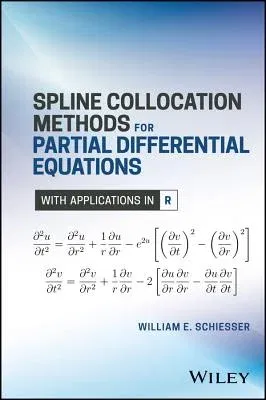A comprehensive approach to numerical partial differential equations
Spline Collocation Methods for Partial Differential Equations combines
the collocation analysis of partial differential equations (PDEs) with
the method of lines (MOL) in order to simplify the solution process.
Using a series of example applications, the author delineates the main
features of the approach in detail, including an established
mathematical framework. The book also clearly demonstrates that spline
collocation can offer a comprehensive method for numerical integration
of PDEs when it is used with the MOL in which spatial (boundary value)
derivatives are approximated with splines, including the boundary
conditions.
R, an open-source scientific programming system, is used throughout for
programming the PDEs and numerical algorithms, and each section of code
is clearly explained. As a result, readers gain a complete picture of
the model and its computer implementation without having to fill in the
details of the numerical analysis, algorithms, or programming. The
presentation is not heavily mathematical, and in place of theorems and
proofs, detailed example applications are provided.
Appropriate for scientists, engineers, and applied mathematicians,
Spline Collocation Methods for Partial Differential Equations
- Introduces numerical methods by first presenting basic examples
followed by more complicated applications
- Employs R to illustrate accurate and efficient solutions of the PDE
models
- Presents spline collocation as a comprehensive approach to the
numerical integration of PDEs and an effective alternative to other,
well established methods
- Discusses how to reproduce and extend the presented numerical
solutions
- Identifies the use of selected algorithms, such as the solution of
nonlinear equations and banded or sparse matrix processing
- Features a companion website that provides the related R routines
Spline Collocation Methods for Partial Differential Equations is a
valuable reference and/or self-study guide for academics, researchers,
and practitioners in applied mathematics and engineering, as well as for
advanced undergraduates and graduate-level students.

